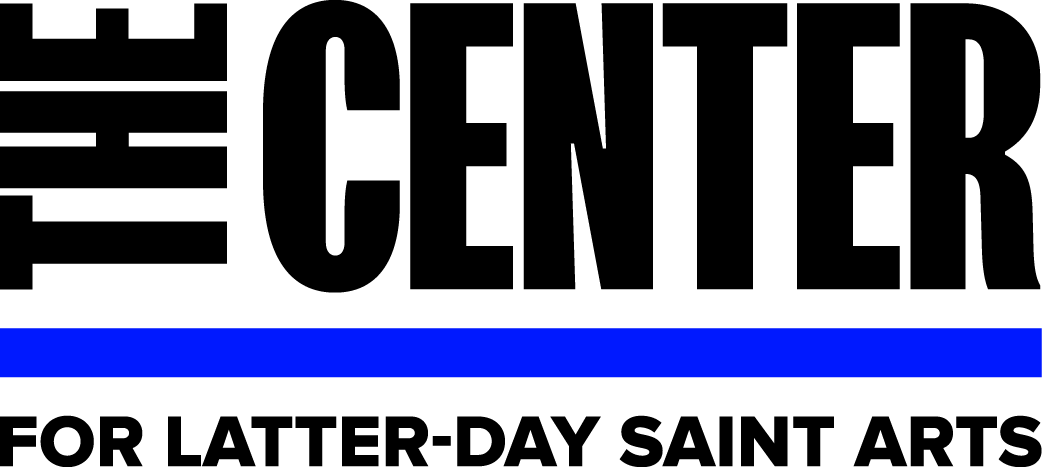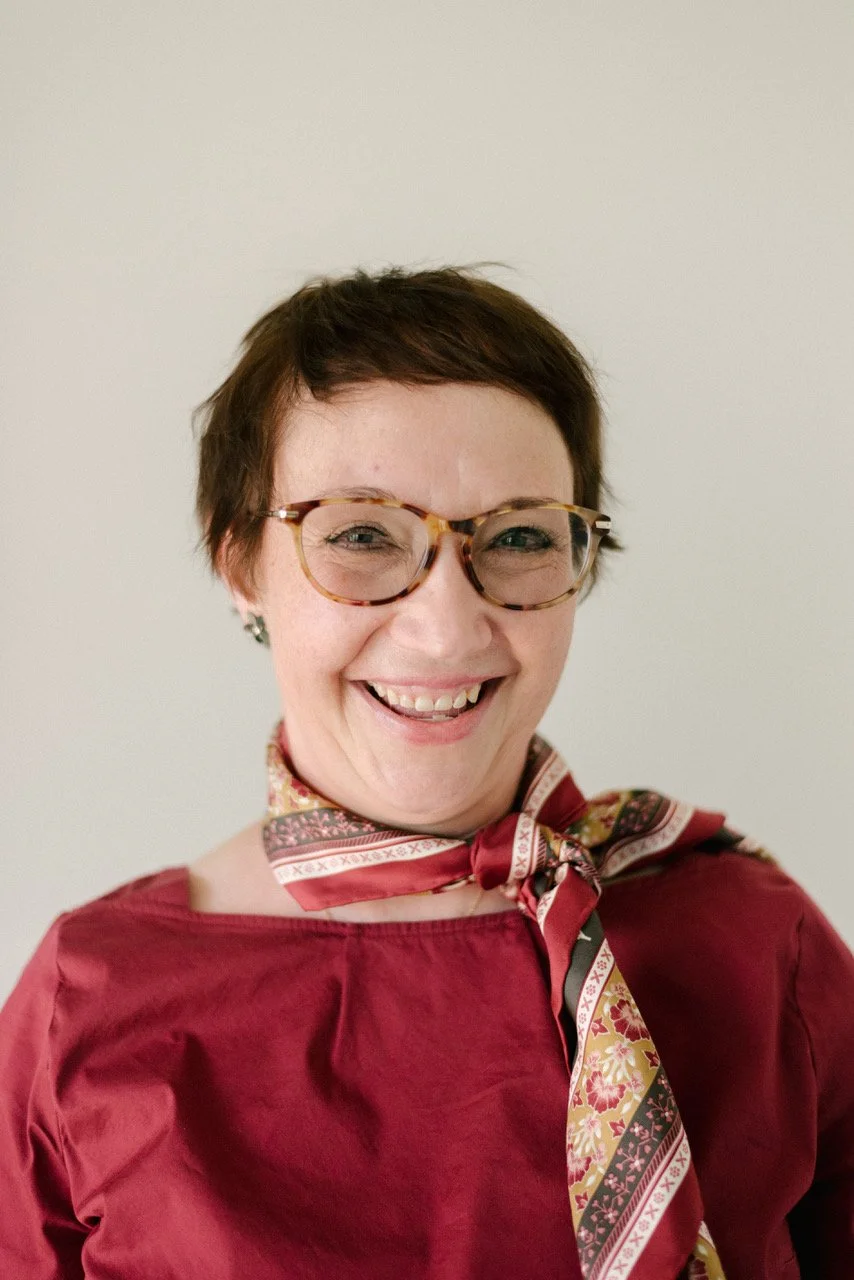My Sunday: Jenny Reeder
The Church History Library in Salt Lake City, Utah is a massive collection of documents and historical records. The 2009 building holds oral histories, architectural drawings, maps, and texts. It is more than anyone could read in a lifetime: 375,000 books, pamphlets, magazines, and newspapers; 150,000 collections of unpublished journals, diaries, letters, and the minutes of Church meetings; 4.6 million patriarchal blessings; 15,000 collections of photographs; and 70,000 audiovisual items. Jennifer Reeder is the 19th century Women's History specialist for the Church History Department of The Church of Jesus Christ of Latter Day Saints.
Photo: Chelsie Starley
In addition to keeping the collections safe, the Library manages a staff of scholars who scour the documents and write about their discoveries. Jennifer is the author or co-author of several books related to her work at the Library. Her most recent is the topical biography, First: The Life and Faith of Emma Smith, published by Desert Book (2021). Previously, with Kate Holbrook, appeared At the Pulpit: 185 Years of Discourses by Latter-day Saint Women (Church Historian’s Press, 2017), and with Denise Johnson, The Witness of Women: Firsthand Experiences and Testimonies from the Restoration (Deseret Book, 2016).
Jennifer’s next book is a collection of discourses by Eliza R. Snow. She has been working on the book for eight years as the lead historian on the project. She and her team found 1,300 discourses by the renowned poet and general president of the Relief Society. They scrutinized every book of Church minutes where Snow could have spoken. The Library has put all these discourses up on the Church Historian’s Press website. Next to appear will be a printed volume of selected and annotated discourses with introductions written by Jennifer and her team. The publication is due in the Spring of 2026, from Deseret Book in conjunction with the Church History Department and the Church Historian’s Press.
Born in Provo, Utah, Jennifer has a PhD in American History from George Mason University in Fairfax, Virginia. Her minor fields were Women's Religious History and Memory and Material Culture. She currently lives in Daybreak, Utah.
We asked this esteemed historian what her typical Sunday looks like. Her comments, edited for length, are below.
Waking up with Meet the Press. I set my alarm for 7:54 a.m. Why? So I can get out of bed and go downstairs and watch Meet the Press. And I'm so happy that my ward schedule has changed from nine o'clock this year to 10:30 because I couldn't do it before. I got into that habit when I lived in Northern Virginia. I dated a man who was a diplomat for the State Department, and he watched it every Sunday. I just became engaged in this whole political world that was different from my graduate school program, and I still feel such a part of DC, so I love it.
Daybreak. Then I eat breakfast and take a shower and go to church, which takes about 10 minutes to drive to. Daybreak is a fascinating place because it's in South Jordan, Utah, but it's a new development. It's kind of a planned community. And it's actually owned by the Larry Miller Foundation. It has like 20,000 homes, and it's a great little community. As a result, there's a lot of new growth, so our state gets reorganized, and our work gets realigned every so often. Right now, I'm in a stake that does not have a stake center or any buildings in the stake boundaries. We have to we meet in a building that's not in our stake, but it works. We make it work.
Teaching. I’m single, so I go by myself. I usually sit with an older woman in my ward, and there's a lot of older women—widows or whatever. And I love it. I love them. I teach Gospel Doctrine once a month to the adults, and I'm also in the Young Women. I'm a Young Women Specialist. So I teach and hang out with the young women. We only have about 10 young women who are active. It's great. I'm always regaling them with Women's History, of course. I'm also regaling my Sunday School classes with Women's History and Latter-day Saints’ art.
The sacrament. I love taking the sacrament. I've been sick a lot with leukemia and bone marrow transplants, and last summer, I was sick, and I broke my wrist. So I've missed some church, but I love taking the sacrament. People have brought me the sacrament. I've had sacrament in a hospital room many times. It's really important to me. It's sacred.
My journal. I always take my journal to church. Sometimes I tune out and just write in my journal because I think journaling is so important. And then sometimes I will, in a different color ink, take notes of really weird things that are said, because you have to have a record. Or very sweet things that are said. I'll go back later and I'll be like, “Hey, you remember that one testimony meeting?”
The sacred Sunday nap. Later, I go home, and I have some lunch, and then then settle down. I never make my bed on Sunday—I make it every other day—and I climb back into bed. Sometimes I eat lunch in bed and have what I call a sacred Sunday nap. And usually it's like, an hour or two. And it's beautiful. After the sacred Sunday nap, I will either go down to my mom's house in Provo for a family dinner or go to someone else's house for a dinner Sunday dinner, or go on a walk, or I will do some work, because I feel like I work for the Church, and that's good Sunday activity (or I'm just behind). And then I'll watch a TV show or a movie at night. Sometimes I have youth fireside that I have to go to, bit it's really hard to get back into my Sunday clothes.
What would Eliza think? On Sundays, I will often I think about the historical figures I've studied. They have informed my life in a lot of ways. I've found such interesting parallels between their lives even though it was a long time before mine. Sometimes I even wonder what Eliza R. Snow would think of me driving my little car, my Subaru, and having short hair and wearing pants sometimes. What she would think of me? But I find her words very inspiring, as well as other people that I do research on. I think a lot about them.
Music. To make Sunday special, I try to listen to music that I feel like is more appropriate for a Sunday, for example, Church music like the Tabernacle Choir, or I love The Lower Lights. It's just a band of people that are do their own thing. It's a banjo kind of sound. They sing old revival hymns. But they also have a Christmas concert every year. That is so good. They're great. I love them. I try to listen to good music. Sometimes when I'm feeling really sabbath day worshippy, I don't go on social media, although I end up on it.
Monday. My Sunday actually ends with a little bit of Monday anxiety. So I have to get pumped. I pump myself up for the week. And I find something to look forward to.

